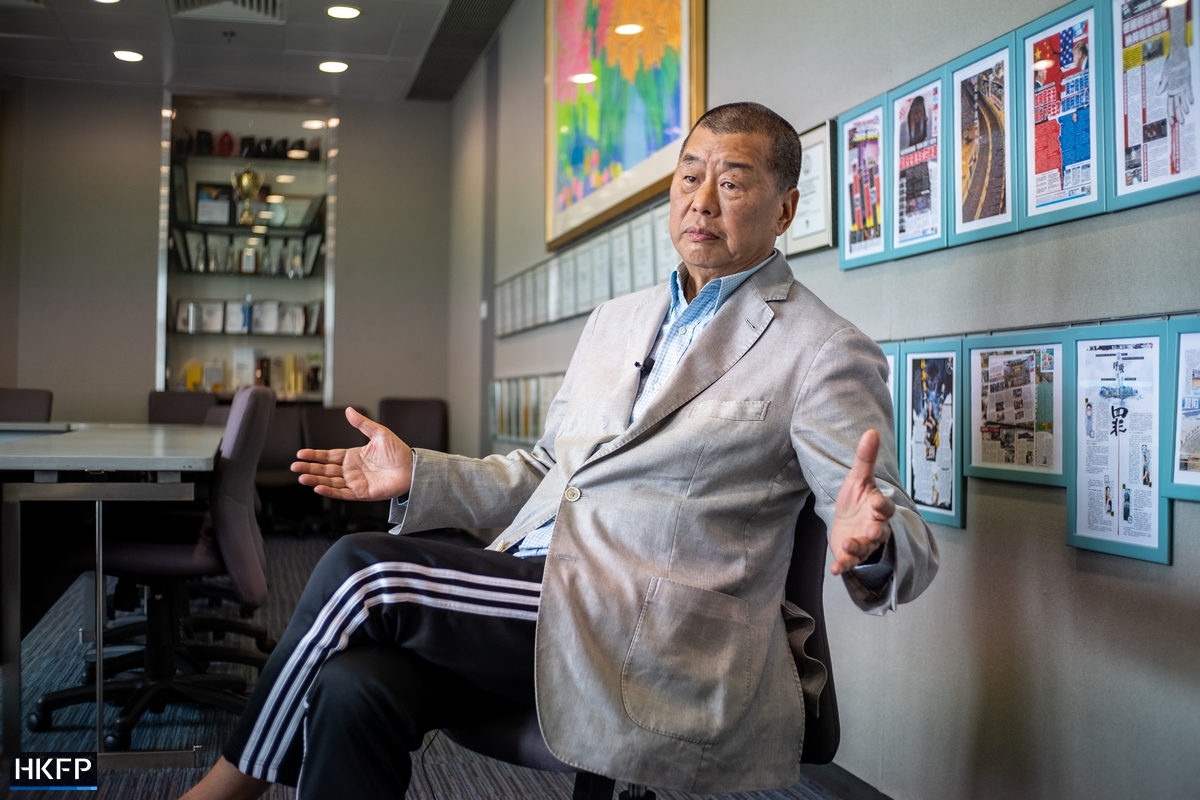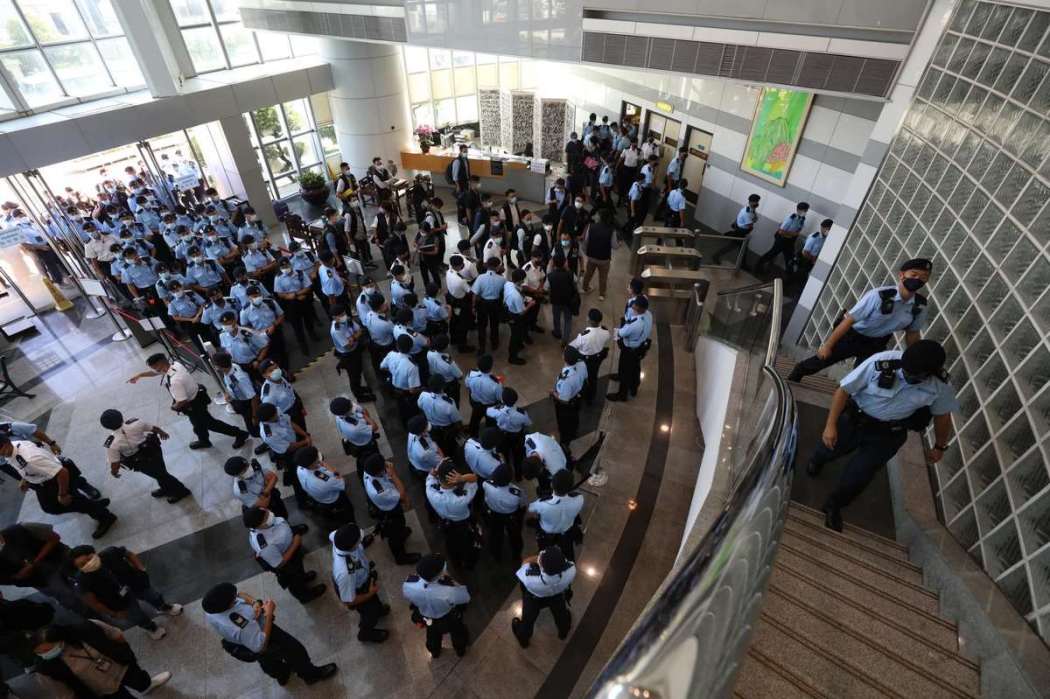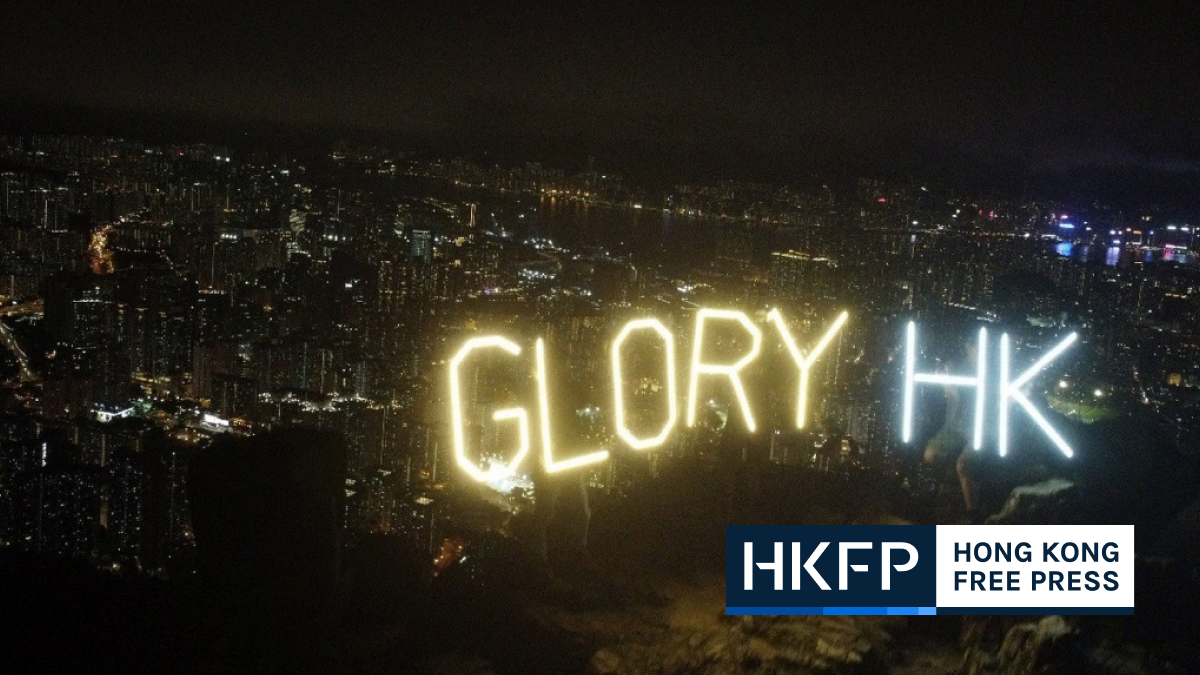A documentary about pro-democracy media tycoon Jimmy Lai remains on YouTube despite a request from Hong Kong police to take it down, a transparency report published by US tech giant Google has revealed.

“In April 2023, we received a request from the Hong Kong Police Force (HKPF) to remove 5 videos featuring ‘The Hong Konger’, a documentary about an imprisoned activist from YouTube,” Google’s report read. “The HKPF alleged that the content was seditious in nature and violative of Crimes Ordinance, Cap. 200 and would amount to criminal contempt of Court as the activist’s trial was ongoing.”
The outcome of the request, according to Google was: “We did not remove the 5 videos from YouTube.”
Since being uploaded to Google’s video sharing site by American research organisation Acton Institute on April 19, the English-language version of the free-to-view feature-length documentary has amassed 2.8 million views. The film is also available in Portuguese and Spanish, and with Traditional and Simplified Chinese subtitles.

Lai, 75, who founded the now-defunct pro-democracy tabloid Apple Daily, has been detained since December 2020. Last December, he was sentenced to five years and nine months in prison for fraud after he was found to have breached the terms of lease of the newspaper’s headquarters.
He has also pleaded not guilty to two counts of conspiracy to collude with foreign forces under the national security law, and one offence linked to allegedly seditious publications, with the high-profile trial set to get underway on December 18, after over a year’s delay. If convicted, he faces life in prison.

Apple Daily was forced to close down in June 2021 after its newsroom was raided, senior executives and editorial staff arrested, and assets frozen, ringing alarms for press freedom in Hong Kong. Months later, independent outlet Stand News went the same way, with two of its top editors later standing trial for sedition.
The verdict in that case is expected next month.
Beijing inserted national security legislation directly into Hong Kong’s mini-constitution in June 2020 following a year of pro-democracy protests and unrest. It criminalised subversion, secession, collusion with foreign forces and terrorist acts – broadly defined to include disruption to transport and other infrastructure. The move gave police sweeping new powers and led to hundreds of arrests amid new legal precedents, while dozens of civil society groups disappeared. The authorities say it restored stability and peace to the city, rejecting criticism from trade partners, the UN and NGOs.
Hong Kong’s press freedom rankings have plummeted since the security law was introduced, falling from 80th position on a global index in 2020 to 140th this year.
‘Glory to Hong Kong’ removal requests
Hong Kong police also asked for two videos that showed the unofficial 2019 protest anthem Glory to Hong Kong being mistaken for Chinese national anthem the March of the Volunteers at international sporting events to be taken down from YouTube.
“The HKPF alleged that the content was part of a conspiracy to insult the national anthem,” Google wrote, adding that it did not remove the videos in question.

In July, the court dismissed a government injunction that sought to ban the “broadcasting, performing, printing, publishing, selling, offering for sale, distributing, disseminating, displaying or reproducing [Glory to Hong Kong],” including on the internet, with a secessionist or seditious intent, or with the intent to violate the national anthem law.
The government has been granted to right to challenge that decision, and the appeal will be heard on December 19, the day after Lai’s trial resumes.
See also: Why, and how, the gov’t wants to ban protest song ‘Glory to Hong Kong’
If the government is successful, the injunction may prove to be existential for Google’s presence in Hong Kong, with industry insiders suggesting it may be difficult for such companies to continue operating in the city amid such restraints.

Last December, security chief Chris Tang said Google had refused to alter the results of its searches that saw Glory to Hong Kong appear before March of the Volunteers when “Hong Kong national anthem” was searched for. Tang said the tech giant had “hurt the feelings of Hong Kong people.”
Speaking to HKFP about Google’s future in the city ahead of the initial injunction verdict, data scientist Wong Ho-wa said: “If they do not plan to obey [if the ban passes], then we will have to see how the government responds,” Wong said.
Gov’t requests increase
The removal requests for The Hong Konger and the Glory to Hong Kong videos were among 164 items requested for removal from January to June, most of which came from the police. Thirty-six of those items were identified as “web search” pages from Google, as well as 35 items from YouTube and 30 from Google sites.
Google has published transparency reports since 2011, revealing government requests around the world. Since 2019, requests from the Hong Kong government rose rapidly, from 57 items in 2019, 122 in 2020 to 330 last year.

Police are now the main source of requests, accounting for almost 71 per cent of requests received in 2022.
Previously, Google revealed details of three occasions where it complied with requests from Hong Kong police to remove content from its platforms during the first half of 2021, including cases involving a Gmail account, a Google Drive account and a Blogger account.
According to Facebook’s Transparency Report, Meta received 201 legal requests from Hong Kong between July and December 2020. The company complied with none of the requests.
Support HKFP | Policies & Ethics | Error/typo? | Contact Us | Newsletter | Transparency & Annual Report | Apps
Help safeguard press freedom & keep HKFP free for all readers by supporting our team
























